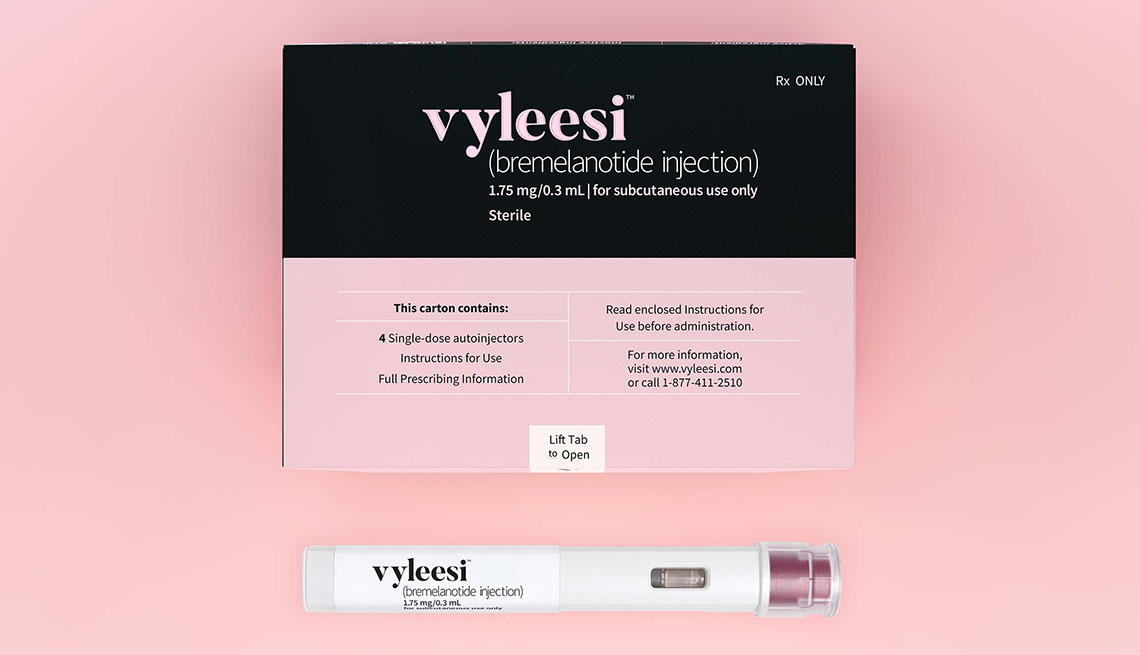Staying Fit
The U.S. Food and Drug Administration (FDA) today approved the drug Vyleesi to boost low libido in women.
"This is a great new option for women, giving women a second FDA approved medication for decreased sexual desire,” says JoAnn Pinkerton, M.D., professor of Obstetrics and Gynecology at the University of Virginia Health System and executive director of the North American Menopause Society (NAMS). The only other drug on the market for this purpose was approved by the agency in 2015.


AARP Membership— $12 for your first year when you sign up for Automatic Renewal
Get instant access to members-only products and hundreds of discounts, a free second membership, and a subscription to AARP the Magazine.
Taken via a pushpen injection “at least 45 minutes before anticipated sexual activity,” Vyleesi is approved specifically for women “who have reduced sexual desire that causes marked distress,” a condition also known as generalized hypoactive sexual desire disorder (HSDD). The drug was also approved for premenopausal women in particular, which was the group studied in the clinical trials.
While the approval announcement kicked off immediate comparisons to Viagra, the drug actually works more like Prozac, targeting receptors in the brain that influence desire. The FDA's statement noted that Vyleesi activates such “melanocortin receptors,” but that the specific “mechanism by which it improves sexual desire and related distress is unknown.” Information from the drugmakers, AMAG Pharmaceuticals, said the drug reduces inhibition and increases “neural excitation."
The drug's effectiveness and safety were studied in two 24-week, randomized, double-blind, placebo-controlled trials in 1,247 premenopausal women with HSDD. Most patients used Vyleesi two or three times per month, and about 25 percent reported what's been described as a “significant” increase in their sexual desire.


































































